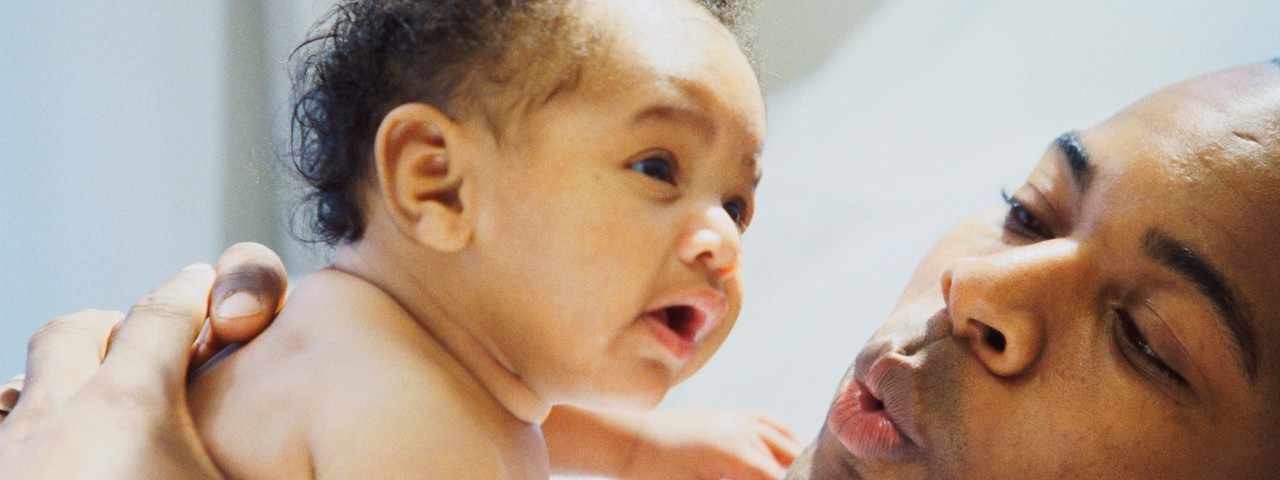The First 3 Years is a Vital Period for Language and Literacy
- Tweet

Have you ever seen a baby right after she was born, and then again a few weeks later? Even in that short amount of time, she seems to have changed exponentially! As much as this is true for a baby’s physical development, so it is for her cognitive development. Research indicates that as soon as they are born babies begin to acquire essential skills, including those related to language.
Babies are natural-born language-learners! Tweet this!Babies’ brains need nurturing.
Development throughout the first few years of life is dramatic, and it’s strongly affected by the stimulation that a child receives. Studies suggest that infants learn language through interactions with parents and caregivers. A baby communicates her desires through sounds, facial expressions, and gestures, and when a parent responds to her cues, she begins to learn the words that correspond to the objects in her environment. The more words that a child hears, the more expansive her own vocabulary will be.
According to research, socioeconomic status is one of the biggest predictors of a child’s early language skills. One study suggested that, on average, children in poor families hear only one third as many words as children of higher socioeconomic status.
This creates a language gap that puts low-income children at a disadvantage early on and contributes to later disparities in kindergarten readiness and school achievement. For example, another study found that the academic success of children ages 9 and 10 can be attributed to how much language they heard in their first three years.
Early experiences strongly affect later development.
Although it may not seem like a gap so early on would have much influence on the rest of a child’s life, research consistently indicates that it does. Low income children are often falling behind their higher income peers even before they enter kindergarten, largely because of early differences in their language environments.
Too often, they never manage to catch up. In fact, the gaps in children’s language abilities actually increase throughout a child’s early elementary years, rather than decrease.
What can you do?
While deficits in language can be devastating for a child’s development, they also negatively impact the community at large. Without a well-educated workforce, a city cannot compete in an increasingly global market. When children do not grow up to reach their full potential, we miss out on their voices and talents, and it’s impossible to know how many opportunities we lose as a result.
Although the problem is far-reaching, there are small steps that we as individuals can take to help address it.
- First, if you are a parent or a caregiver, remember that talking to your baby early and often is crucial! Do what you can to expose them to an extensive vocabulary — reading books can be a great way to introduce new words. This simple activity will help set them on the right trajectory for years to come.
- As an early childhood professional, keep in mind that you are a vital component in children’s cognitive development. Be sure to provide a stimulating, positive, and nurturing environment to help facilitate early literacy and language skills. At the same time, you’ll also be instilling a love of learning, which is invaluable.
- As a community member, you can support and advocate for policies that promote and provide literacy services for both parents and children. It is also important that funding be given for high-quality early language and literacy training for professional caregivers.
- Parents of very young children can often feel stressed by the new demands of caregiving. As a neighbor, friend, and community member, support and encourage parents in their important roles of raising up the next generation. And be sure to spread the word — the first three years are essential!
